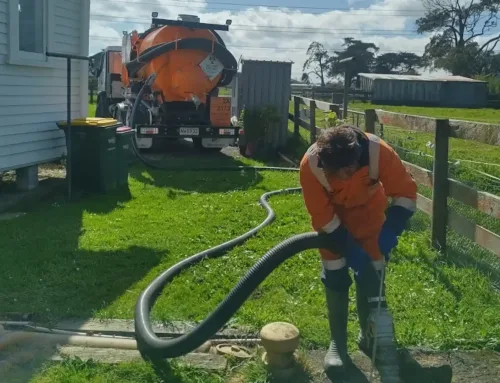Reclaim Waste for Dummies
Reclaim Waste for Dummies
Blog Article
Some Known Questions About Reclaim Waste.
Table of ContentsThe 7-Second Trick For Reclaim WasteReclaim Waste for DummiesThe 5-Minute Rule for Reclaim WasteFacts About Reclaim Waste RevealedThe Facts About Reclaim Waste Uncovered
Explore the types, events, and kinds of liquid waste. Residential sewage waste describes the waste and items from a property septic system. This type of waste is developed by humans in residences, institutions, and other structures. This only includes sewage-disposal tanks that have a drain field. The appropriate management and disposal of residential sewage waste require liquid waste to be transferred to a sewer treatment plant where the correct methods and devices are applied to cleanse and dispose of waste.
Commercial waste typically consists of prospective dangers, such as combustible products or a mixture of liquid and strong waste items, and needs a more sophisticated and detailed disposal process. The disposal of industrial waste commonly involves the filtration of waste before transport to make certain safe and appropriate disposal. Hazardous waste is developed from results and drainage of industrial processes and production.
This type of waste can not utilize the exact same sewer administration transport or procedures as septic or business fluids. The hazardous waste management process needs the assessment and screening of fluid waste before it undergoes the disposal process (industrial wastewater treatment). Drainage waste is the fluid waste that comes from runoff and excess stormwater in highly inhabited locations or cities
Runoff waste can cause contamination and flooding if not taken care of effectively. Making sure proper waste management can protect against catastrophes and decrease ecological damage.
Unknown Facts About Reclaim Waste
Contact PROS Solutions today to learn more about our waste management and disposal solutions and the correct methods to look after the liquid waste you generate.
(https://giphy.com/channel/reclaimwaste1)This supposed 'wastewater' is not only a crucial resource however, after therapy, will be released to our land, rivers or the ocean. Made use of water from bathrooms, showers, bathrooms, kitchen area sinks, washings and industrial procedures is recognized as wastewater.

water used to cool down machinery or tidy plant and devices). Stormwater, a form of wastewater, is overflow that flows from farming and metropolitan locations such as roof coverings, parks, gardens, roads, courses and seamless gutters right into stormwater drains pipes, after rainfall. Stormwater streams neglected straight to local creeks or rivers, ultimately getting to the ocean.
An Unbiased View of Reclaim Waste
In Queensland, most wastewater is treated at sewage treatment plants. Wastewater is moved from domestic or industrial websites via a system of sewers and pump stations, go to website known as sewerage reticulation, to a sewage therapy plant. Neighborhood governments build, keep and run most sewage treatment plants. Operators are certified under the Environmental Management Act 1994 to release cured wastewater at an acceptable environmental standard into waterways.
The Department of Natural Resources recommends local federal governments concerning handling, operating and preserving sewerage systems and therapy plants. In unsewered locations, city governments might need homeowners to install specific or house sewage treatment systems to deal with residential wastewater from toilets, kitchens, bathrooms and washings. The Division of Natural Resources authorises making use of house systems when they are verified to be efficient.
The majority of stormwater gets no therapy. In some brand-new neighborhoods, therapy of some stormwater to eliminate litter, sand and crushed rock has actually begun making use of gross contaminant catches. Wastewater therapy occurs in 4 stages: Gets rid of solid issue. Larger solids, such as plastics and various other items mistakenly discharged to sewage systems, are eliminated when wastewater is gone through displays.
Uses tiny living organisms understands as micro-organisms to damage down and get rid of remaining dissolved wastes and great fragments. Micro-organisms and wastes are incorporated in the sludge.
Reclaim Waste for Beginners
Nutrient elimination is not available at all sewage treatment plants because it needs expensive specialised equipment. It is becoming a lot more typical in Queensland. Clear liquid effluent created after treatment may still contain disease-causing micro-organisms. If this effluent is released right into rivers such as rivers or the sea, the micro-organisms will at some point pass away out.

This typically implies wastewater has to be dealt with or pollutants eliminated before it can be released to waterways. Most wastewater moves right into the sewerage system. Under the Act, city governments administer authorizations and licences for environmentally pertinent tasks (ERAs) entailing wastewater launches that may have a local impact. The division provides authorizations and licences to Periods including wastewater releases that may have a regional or statewide influence.
Reclaim Waste Can Be Fun For Everyone
Otherwise, samples are considered research laboratory analysis. Often numerous examinations are needed to establish the degrees of each of the various contaminants such as oils, hefty steels and chemicals in water. Tracking supplies valid information regarding water quality and can verify that permit problems are being met. The info gotten through tracking supplies the basis for making water top quality decisions.
Report this page